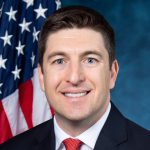Salad Days
By David Seitz
When Wisconsin voters consider the proposed constitutional ban on civil unions and same-gender marriage on November 7, it will mark the first time the fate of unmarried domestic partners (lesbian, gay and heterosexual) and their families has been subject to direct legislation in our state’s history. While the legislature has long debated lesbian, gay, bisexual and transgender (LGBT) issues, the proposed amendment injects LGBT rights directly into the public discourse in a new way, blurring the boundaries between the personal and the political in ways not seen since the Civil Rights Movement of the 1960s.
Drawing the lines
As a 22-year veteran of the state legislature who is also an openly gay man, State Senator Tim Carpenter (D-Milwaukee) speaks clearly about how he maintains professional relationships with colleagues and constituents whose votes or views harm the interests of LGBT Wisconsinites and their families.
“I respect those who philosophically believe in what they’re doing, as opposed to those who know it’s baloney, or who didn’t decide for themselves,” Carpenter says. “Some who personally opposed the ban but voted for it said to me, ‘It’s nothing personal, but I voted that way.’ Privately, I’m disappointed, and I’ll think a little less of them as human beings, but it certainly doesn’t keep me from working with them on behalf of my constituents.”
He also notes that he only rarely hears negative comments from constituents about his own sexual orientation, and that when confronted, he simply moves on to the next person.
By contrast, Carpenter’s colleague from a neighboring district, State Senator Tom Reynolds (R-West Allis), has come under fire from constituents, LGBT community leaders and his election opponent for his support of the ban and handling of related issues. Reynolds is seeking re-election in the 5th State Senate district.
Reynolds has not been criticized for the sort of election-oriented cynicism Carpenter describes as so disappointing. On the contrary, Reynolds appears to fall into the category of those who “philosophically believe” in the ban. An evangelical Christian, Reynolds was the only state legislator to attend the 2003 “International Conference on Homo-Fascism” in Milwaukee. He also professed support for the ban in campaign literature, writing, “…the secular humanists are trying to normalize all perverse human desires.” He has been reproached for failing to develop that ability which Carpenter describes as so vital to a professional legislator’s work: separating personal opinion from professional priority.
As one of Reynolds’ constituents, I experienced this firsthand. I am openly gay and continue to actively oppose the marriage ban. I mentioned those facts during a listening session Reynolds held at my church on the matter in 2004. After that meeting, Reynolds personally sent me information on “re-orientation therapy” for gay people on his state senate letterhead and franking.
Though this encounter and one other took place two years ago, I only felt comfortable speaking publicly about them this spring. Since my story came to light, I have learned of other gay citizens who say they’ve had similar experiences with Reynolds. Given the implications for the tenor of our public discourse, these stories are worth exploring.
No cost to taxpayers?
Andy Schauer is a labor and employment attorney who works in Wauwatosa. Schauer attended one of Reynolds’ listening sessions in April 2005. After discussing other state issues, he brought up his opposition to the civil unions and marriage ban, citing the U.S. Constitution’s equal protection clause.
Reynolds accused Schauer of having “very stereotypical” views, something Schauer says he found confusing. While Schauer is openly gay, he had not mentioned his own sexual orientation during his initial conversation with Reynolds.
Subsequently, Schauer received and, in early July 2005, took Reynolds up on an invitation to discuss state issues one-on-one. He joined Reynolds and his wife, Sandy, in their home for a fresh garden salad, and after a bit of political small talk, began discussing the ban. In the course of that dialogue, Schauer says he came out to Reynolds.
Reynolds “seemed surprised,” Schauer says, but to his credit, “he kept talking.” Sandy Reynolds, on the other hand, appeared to grow “uncomfortable” as the conversation progressed.
Sensing that their views were irreconcilable, Schauer eventually moved the conversation on.
Shortly after the meeting, though, Reynolds sent Schauer an issue of Liberty magazine, a publication of the Seventh-day Adventist church. While Reynolds noted in an accompanying letter that “the magazine was provided… by the publisher and at no cost to the taxpayers or to [him] personally,” the 32-page document arrived in the mail on state senate letterhead and franking.
The magazine included an article entitled “Response to Same-Sex Unions” approved by the Seventh-day Adventist church. It reads in part: “Homosexuality is a manifestation of the disorder and brokenness in human inclinations and relations caused by sin coming into the world. While everyone is subject to fallen human nature, we also believe that by God’s grace and through the encouragement of the community of faith, an individual may live in harmony with the principle of God’s word… [I]t is very clear that God’s word does not countenance a homosexual lifestyle.”
Schauer, who double-majored in theology and political science at Marquette University, feels Reynolds’ behavior was inappropriate. “I’m being told through state fiat not to be homosexual,” he says. “Senator Reynolds is espousing an overtly religious view from a religious organization in order to sway my mind, not only on a government issue, but in regard to my orientation in general.”
Ending the conversation… or not
Eric Euting grew up in Wauwatosa, co-founding Wauwatosa East High School’s Gay-Straight Alliance. Euting wrote Reynolds about the ban the first time the legislature considered it, mentioning his homosexuality and his personal stake in the issue.
After the vote, Euting received a form letter outlining Reynolds’ support for the ban. Months went by. Then he, too, received an invite for a fresh garden salad, and met with Reynolds in summer of 2004.
He tried appealing to Reynolds’ conservatism, taking a small government tack in opposing the ban. “I got nowhere,” Euting says. “All his counterpoints were sort of like ‘we’ll just have to agree to disagree.’ It just ends the conversation.”
Euting says he left frustrated, and didn’t hear from Reynolds for months. Then, like Schauer, Euting received a copy of the same issue of Liberty magazine from Reynolds’ office. He did not respond.
After a few more months, Euting says Reynolds mailed him another pamphlet, this one on “re-orientation therapy.” Re-orientation is a widely discredited pseudoscience that aims to convert homosexuals to heterosexual orientation, generally based on fundamentalist Christian theology.
“I thought it was distasteful and inappropriate,” Euting says. “It was completely out of the realm of his responsibility.”
Not “God-sanctioned”
A Wauwatosa resident and out lesbian, Laurie Guilbault, too, contacted Reynolds in 2004 to oppose the ban, and also accepted an invitation for fresh garden salad with Reynolds in his home.
While she called Reynolds “professional in person,” she says she was somewhat puzzled by Reynolds’ choice of posture.
“He wouldn’t even sit at the table with us,” Guilbault says. “He sat on a stairwell.”
Moving past the initial awkwardness, Guilbault tried to approach Reynolds’ support for the amendment from a variety of angles. She, too, began to sense that there was no potential for movement, and after about 45 minutes, she took a stab at a fundamental question: Why? What is the state’s interest in continuing to deny marriage to same-gender couples?
At that point, Guilbault recalls, Sandy Reynolds interrupted, responding,
“Because it’s not God-sanctioned.”
Guilbault knew that that no further productive conversation was possible, and left. To Guilbault’s surprise, however, Reynolds seemed to have other ideas. “He continued to send me various notes and things to the effect of ‘please come join me for that fresh salad,’” she says.
Guilbault ignored them, hoping Reynolds would recall their meeting and correct the error, or give up. Instead, in December 2004, Guilbault, too, received a copy of Liberty magazine, again on state franking.
“It was the final straw for me,” Guilbault says. “I called his office at that point and expressed to his staff that I didn’t want any more communication with him on the topic, and if I got any more, I would view it as harassment.”
Guilbault also filed a complaint with the State Ethics Board, citing the distribution of religious points via state funds as cause for concern.
An exercise in contrasts
There’s little doubt that Reynolds “philosophically believes” in what he’s doing. And though he is not alone among elected officials in possessing this trait, Reynolds’ actions cross some pretty distinct ethical, and possibly legal, lines. So it’s worth asking whether his documented application of that philosophy allows him to work effectively with all his constituents and colleagues. And regardless of one’s stance on the implications of bending the U.S. Constitution to “moral imperative,” civilized discourse must inarguably be a part of the process. The future of our state, of our families, and of rights as citizens, depends on it. VS



















